- 25 Mart 2025 - -YENİ- İYİ FİNAL/YAŞLILIK İÇİN
- 17 Mart 2025 - MİLLİ BİRLİK VE BERABERLİĞİMİZİN 5 KİLOMETRE TAŞI
- 10 Mart 2025 - NEYİ ÇEKİYORSUNUZ? (Rezonans-Çekim Yasası)
- 03 Mart 2025 - ŞEYTANI NE DAVET EDER?
- 24 Şubat 2025 - ŞANLI DEVRİMİ DUYDUNUZ MU?
- 17 Şubat 2025 - -YENİ- AİLE YILINDA KAMU-STK DENGESİ (AİLE VAKFI ÖNERİSİ)
- 10 Şubat 2025 - MİKROFONLA EZAN OKUNURKEN SAĞA/SOLA DÖNÜLÜR MÜ?
- 04 Şubat 2025 - YILDIZ MI, AY MI, KARA DELİK MİSİNİZ?
- 27 Ocak 2025 - FELAKETLERİN İLK ADIMI SUÇLUNUN MASA İLAN EDİLMESİYDİ
- 20 Ocak 2025 - ÜZÜMÜN SAPI, ARMUDUN ÇÖPÜ, MUZUN KABUĞU YENİR Mİ?
- 13 Ocak 2025 - BİZİ KİM DAHA İYİ YIKAR? SU MU, ATEŞ Mİ?
- 07 Ocak 2025 - KAN BAĞIŞI MI? HACAMAT MI?
- 30 Aralık 2024 - KAVGALARIN ASIL SEBEBİ NEDİR?
- 25 Aralık 2024 - VER KORKUYU DEĞİL; VER COŞKUYU
- 17 Aralık 2024 - İMAN-HİKMET-GAYRET-TEVEKKÜL
- 09 Aralık 2024 - ZITLIKLARIN ORTASINDA VASATI BULMAK
- 02 Aralık 2024 - MECELLE PUSULASI (ALTIN FORMÜL İÇERİR)
- 25 Kasım 2024 - ZAHMETTEN KAÇARAK RAHMETE ULAŞILABİLİR Mİ?
- 18 Kasım 2024 - HAK YOK VAZİFE VAR; FERT YOK CEMİYET VAR.
- 11 Kasım 2024 - POLİMAT-ENTELEKTÜEL
- 04 Kasım 2024 - ÖNCE DONANIM (HARDWARE) SONRA YAZILIM (SOFTWARE)
- 28 Ekim 2024 - İBRETLİK BİR ÖLÜMDEN DERS ÇIKARABİLMEK (FETÖ GERÇEĞİ)
- 21 Ekim 2024 - YAŞLANMA SÜREÇ ODAKLI BİR GELİŞMEDİR VE ANNE KARNINDAN BAŞLAR.
- 15 Ekim 2024 - ÜÇÜ BİRLEYEBİLİR MİYİZ? (Türkçülük/İslamcılık/Batıcılık)
- 07 Ekim 2024 - BEYİN-BEYİNCİK-VİCDAN=YASAMA-YÜRÜTME-YARGI
- 30 Eylül 2024 - GEÇMEK Mİ, KALMAK MI?
- 23 Eylül 2024 - METAFOR (MESNEVİ/KABAK METAFORU)
- 10 Eylül 2024 - İDDİALAR VE HIRSLARIMIZIN KUŞATTIĞI HAYATLARIMIZ
- 03 Eylül 2024 - KİTAP VE SİLAH DENGESİ
- 21 Ağustos 2024 - GÖZ BEBEĞİMİZ OLAN DOSTLARIMIZ (!)
- 12 Ağustos 2024 - ÖNCELİKLİ KAYGILARIMIZ
- 06 Ağustos 2024 - SEVGİ-ACI-HZ. İNSAN
- 29 Temmuz 2024 - İNİŞ-ÇIKIŞ-KONFOR
- 22 Temmuz 2024 - GENÇLİĞİN GÜNDEMİNDEKİ KONULARA DAİR: SORU/CEVAP
- 15 Temmuz 2024 - KAPAĞINIZ/DUDAĞINIZ KAPALI MI?
- 09 Temmuz 2024 - SÜLEYMANLAR AYAKTA ÖLÜR.
- 05 Temmuz 2024 - EVLİLİK YAŞI İÇİN 5 N 1 K (HZ. AİŞE ÖRNEĞİ ÜZERİNDEN)
- 25 Haziran 2024 - İNSAN HAYATA NEREDEN BAŞLAMALI ?
- 12 Haziran 2024 - İNSAN NEDEN ALZHEİMER VE DEMANS OLUR?
- 05 Haziran 2024 - SEVİNİNCE TOPRAĞA, ÜZÜLÜNCE GÖKYÜZÜNE BAK!
- 29 Mayıs 2024 - BİR HİKÂYENİZ VAR MI?
- 23 Mayıs 2024 - EN BÜYÜK SÜRPRİZ BİZİ BEKLİYOR OLABİLİR Mİ?
- 13 Mayıs 2024 - MESLEK LİSESİ Mİ, FEN/ANADOLU LİSESİ Mİ? (MÜFREDAT İÇİN)
- 06 Mayıs 2024 - ANAOKULU MU, ÜNİVERSİTE Mİ? (MÜFREDAT İÇİN)
- 29 Nisan 2024 - HARDAL TANESİ
- 22 Nisan 2024 - ÖZELEŞTİRİ Mİ / SAVUNMA MI?
- 08 Nisan 2024 - SİYASETTE ADALET Mİ FAYDA MI?
- 03 Nisan 2024 - YAPAMADIĞIMIZ ŞEYİ ALLAHTAN İSTEMEK!
- 26 Mart 2024 - BUEN VİVİR
- 25 Mart 2024 - BAŞROL DE Mİ OYNUYORSUNUZ, YOKSA FİGÜRAN MISINIZ?
- 13 Mart 2024 - NEHİR AKMALI!
- 12 Mart 2024 - NEHİR AKMALI!
- 05 Mart 2024 - SAYGI DUYMAM GEREKEN BU(!) MU?
- 29 Şubat 2024 - DÜNYA VE AHİRETTE UYUYABİLMEK VE UYANABİLMEK
- 22 Şubat 2024 - OMURGA
- 12 Şubat 2024 - AİLE NEDEN İLK DÜŞMANDIR?
- 09 Şubat 2024 - ANNE/BABA/ÖĞRETMEN ACI BİR TEBESSÜM
- 29 Ocak 2024 - DERDİNİN DEVASI SENSİN
- 23 Ocak 2024 - EŞYANIN RUHU
- 15 Ocak 2024 - ALÇAK GÖNÜLLÜ
- 09 Ocak 2024 - NEDEN UZAKLARI YAKIN, YAKINLARI UZAK ETTİK?
- 01 Ocak 2024 - EN BÜYÜK FESAT NEDİR ?
- 25 Aralık 2023 - İKİNDİ NAMAZI VE BENÎ KURAYZA YAHUDİLERİ
- 18 Aralık 2023 - Kütük Çok Sahibi Yok!
- 12 Aralık 2023 - Fix/Takıntı
- 04 Aralık 2023 - Siyaset ve Tefekkür
- 27 Kasım 2023 - Haddini bil, mutlu ol!
- 20 Kasım 2023 - Korona Döneminin Dijital Çocukları
- 14 Kasım 2023 - Sessizliğin Gücü (Meryem, 19/10)
- 07 Kasım 2023 - Çocuğa Sevgi, Gence Güven ve Yaşlıya Saygı
- 16 Ekim 2023 - Pozitiflik, Saf Pozitiflik midir?
- 12 Ekim 2023 - Gülümseme ve Huzur
- 02 Ekim 2023 - Kabz ve Bast
- 20 Eylül 2023 - Bağınız her daim açık mı?
- 13 Eylül 2023 - Nişanlınız Nasıl Güzel Olur?
- 30 Ağustos 2023 - Helalleşme/Sıfırlama(!?) Mümkün mü?
- 22 Ağustos 2023 - Yalanın Negatif ve Pozitifi
- 17 Ağustos 2023 - Ne yığdırın, ne de bağırtın.
- 07 Ağustos 2023 - Kadife Yumruk (Gerçeğin Gücü)
- 03 Ağustos 2023 - Artırılmış Sanal Hayatın Kurbanları
- 23 Temmuz 2023 - Peygamber Kıssaları ve Çocuk Eğitimi
- 18 Temmuz 2023 - Peygamber Kıssaları ve Çocuk Eğitimi
- 03 Temmuz 2023 - Neredesin Hızır?
- 28 Haziran 2023 - Nakıs/Noksanlık/İmtihan
- 14 Haziran 2023 - 5 95den Büyüktür. (Çocuk Eğitimi)
- 06 Haziran 2023 - Aile Mahremiyeti ve Nükleer Enerji
- 29 Mayıs 2023 - Talip Olduklarımıza Dikkat!
- 23 Mayıs 2023 - Liderlere Hüsn-i Hâtime İçin 5 Tavsiye
- 15 Mayıs 2023 - Seferoğulları, Tellioğulları ve Yeşil Vadi
- 08 Mayıs 2023 - Ubasute
- 01 Mayıs 2023 - İşiniz Zor mu?
- 10 Nisan 2023 - Niyet-Düşünce-Söylem-Eylem-Amel-Ahlak
- 03 Nisan 2023 - Her Zaman, Her Şeye Rağmen Kazanmak mı?
- 27 Mart 2023 - Faraziye Hayatlar, Şimdi ve Burası
- 20 Mart 2023 - Kifayetsiz Muhterisler, Dış Güçler ve Türkiye Yüzyılı
- 13 Mart 2023 - Sofradaki Çatal (Vasat-Orta Yol)
- 06 Mart 2023 - Hayat; geriye doğru , ileriye doğru
- 20 Şubat 2023 - Sabır; Boyun Eğmek Değil Mücadele Etmektir.
- 13 Şubat 2023 - Deprem - Kenetlenme - Kader - Tedbir
- 08 Şubat 2023 - Köy/Şehir Gerilimi ve Başıboş Köpekler Sorunu
- 31 Ocak 2023 - Akupunktur-İğnelenme-Eleştiri
- 23 Ocak 2023 - Üç Farklı Rüzgârın Anaforundaki Ülkem
- 17 Ocak 2023 - Mehmetleri Fatih Yapmak İçin
- 09 Ocak 2023 - Mevlana, Konevi ve Urmeviyi Anlamak İçin
- 03 Ocak 2023 - Kadın ve Erkek Eş Değerdir.
- 20 Aralık 2022 - Kötülük Genini Çıkarabilir miyiz?
- 12 Aralık 2022 - Kimin Uydusuyuz?
- 05 Aralık 2022 - Sağlıklı Birey-Mutlu Aile-Huzurlu Toplum
- 02 Aralık 2022 - Hak ve Hakikat
- 21 Kasım 2022 - Acı Bir Tebessümle Kayan Yıldızlar
- 15 Kasım 2022 - Aile ve Gençlik Çalıştayı
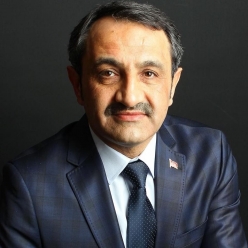
DR. CEMİL PASLI
Sema bize ne anlatır?
“Sema” bize ne anlatır?
Sema, Mevleviliğin en önemli ritüelidir.
Mevlevilik ise teşekkül ettiği zamandan günümüze Anadolu ve Balkan coğrafyası üzerinde en çok tesiri olan tasavvuf akımıdır.
Bu gerçeği en güzel Yahya Kemal Beyatlı dile getirir:
Ahmet Hamdi Tanpınar bir gün Yahya Kemal Beyatlı’ya sorar:
“Üstad! Biz Viyana’ya nasıl gittik?”
Yahya Kemal Beyatlı cevap verir:
“Mesnevi okuyarak ve pilav yiyerek.”
Yedinci yüzyılda Mekke’de doğup, Medine’de kemale eren (Maide, 5/3) İslam Ümranı dünyanın zirvesine çıktığını 13. Yüzyılda üç merkez şehirden yüksek sesle ilan etti.
Bu şehirler doğuda Semerkant, batıda Kurtuba, ortada, merkezde Konya idi.
İslam Ümranı altı asırlık gelişmesiyle öyle bir kıvama erişmişti ki; her üç şehirde de aklın, vicdanın ve kalbin zirvesi âlimler yetişti.
Konya’da kâmil aklı Siracaddin Urmevi, mutmain kalbi Mevlana Celaleddin Rumi, nurlanmış vicdanı Sadreddin Konevi temsil etti.
Endülüs’te İbn Tufeyl “Hay bin Yakzan” la İslam ümranının dünyaya önerdiği “ideal Âdem” profilini ortaya koydu.
Batı dünyası, İbn Tufeyl’in 12. Yüzyılda ortaya koyduğu “ideal Âdem” profiline kendi birikimlerinden cevap olarak ancak 18. Yüzyılda Daniel De Foe’nin kaleme aldığı “Robinsone Crouse” isimli çakma ve kopya çok yetersiz bir kitapla karşılık vermeye çalıştı.
Semerkant’tan İmam Maturidi insan-Allah ilişkisine dair en mükemmel çerçeveyi ortaya koydu.
İslam Ümranı’nın zirveye çıktığı dönemde zirve şehirde teşekkül eden Mevlevilik sema ritüelinde dünyaya vereceği bütün mesajı birleştirdi.
Bir eli yukarıya diğer eli aşağıya salarak; insanın Allah’la ilişkisini yorumladı.
7/24 Aşkın varlığı Allah ile çevrimiçi olan insan, halife misyonu gereği Hak’tan aldığını halka, halktan derlediğini Hak’ka iletmelidir.
Yüzünü sadece doğuya, batıya, kuzeye, güneye değil; her tarafa dönmelidir.
Çünkü; “Doğu da, batı da Allah’ındır. Nereye dönerseniz orada Allah’ı bulursunuz. (Yeryüzünün her tarafı mescittir. Allah her yerde vardır.) Şüphesiz Allah’ın varlığı ve bilgisi sonsuzdur.” Bakara, 2/115.
İnsan elini hep açık tutmalı, Allah’ın dünyada tecelli eden Rahman ismi gereği herkesle tokalaşmalı, kucaklaşmalı, kimseye karşı elini yumruk yapmamalıdır.
Sağından, solundan, önünden arkasından, altından üstünden gelen ilahi mesajlara kulağını, gözünü, aklını, kalbini, vicdanını açık tutmalı; kâinata dikkat kesilmelidir:
“Şimdi bak, Allah'ın rahmet eserlerine: Yeryüzünü ölümünden (kuruduktan) sonra nasıl diriltiyor (yeşertiyor)? Şüphe yok ki yeryüzünü kuruduktan sonra dirilten, elbette ölüleri (kabirlerinden) diriltir. O, her şeye kadirdir.” Rum, 30/50.
Tezekkürle elestü bezminden bugüne, tefekkürle bugünden kıyamete, ahirete, sırata, mizana, cennete/cehenneme bakabilmeli; taakkulla tezekkür ve tefekkürle elde ettiklerini bağlayarak birleştirmeli ve tedebbürle “an” a dair tedbir almalıdır.
Acelenin şeytandan, teemmülün, sükunetin, sabrın, tadil-i erkanın Rahmandan olduğu bilinciyle dünyayı sakin, ağırbaşlı ve her saniyenin hakkını vererek yaşamalıdır.
Her yaşadığı geceyi Kadir, her muhatap olduğu kişiyi Hızır bilmek ancak yüzünü bütün yönlere çevirebilmek ve aklını/vicdanını/kalbini herkese eşit açabilmekle mümkün.
“Sema” üzerine ciltler dolusu kitaplar yazılabilir dostlar…
Bizimkisi ariflere işaret nev’inden küçük bir çeşni.
Konya’da üç yıldan fazla oturmuş ve hala Mesnevi’yi bitirmemiş bütün kardeşlerime buradan sitem etmek istiyorum.
Konya’lı olarak bir okyanusun üzerinde oturuyorsunuz.
İşin akıl tarafında Urmevi, vicdan tarafında Konevi, kalp tarafında Mevlana var.
Fatih Sultan Mehmet’in sürekli cönkünde/el çantasında yanında taşıdığı dört kitaptan birisi Konevi’nin “Miftah’ul Gayb” idi.
Lütfen! Üzerinde oturduğumuz hazinenin değerini bilelim.
Mevlana, Konevi, Urmevi, Şems gibi hazineleri belli gün ve mekânlardan bağımsız analım, anlayalım, okuyalım, hemhal olalım.
Akılsız tavuk gibi darı ambarında acımızdan ölmeyelim.
Ki, sema keyfiyetinde güzel bir hayat yaşayalım ve ölümümüz “düğün gecemiz/şeb’i arus” olsun.
Ölürken biz gülelim, dostlarımız üzüntüden bayılsın. (Mevlana’nın cenaze namazı için imamete geçen Konya’nın vicdanı Konevi üzüntüden bayıldı ve namazı kıldıramadı. Yerine Konya’nın aklı Siraceddin Urmevi geçti ve namazı O kıldırdı.)
“Sema” zenginliğinde bir hayat sizlerin olsun inşallah.
What does “Sema” tell us?
Sema is the most important ritual of Mevlevi.
Mevlevi is the Sufi movement that has had the most influence on Anatolia and the Balkan geography from the time it was formed to the present day.
Yahya Kemal Beyatlı expresses this truth best:
Ahmet Hamdi Tanpınar once asked Yahya Kemal Beyatlı:
"Master! How did we get to Vienna?”
Yahya Kemal Beyatli answers:
“By reading the masnavi and eating rice.”
The Umran of Islam, who was born in Mecca in the seventh century and attained perfection in Medina (Maide, 5/3), declared loudly from three central cities in the 13th century that he had reached the top of the world.
These cities were Samarkand in the east, Cordoba in the west, and Konya in the middle and center.
With its six centuries of development, the Umran of Islam had reached such a consistency that; In all three cities, scholars were trained, the pinnacle of the mind, conscience and heart.
Siracaddin Urmevi, the perfect mind, represented Mevlana Celaleddin Rumi, the heart of contentment, and Sadreddin Konevi, the enlightened conscience.
In Andalusia, Ibn Tufeyl revealed the "ideal Adam" profile that the Islamic Umran offered to the world with "Hay bin Yakzan".
The Western world tried to respond to the "ideal Adam" profile that Ibn Tufayl put forward in the 12th century, with a very inadequate and fake book called "Robinsone Crouse" written by Daniel De Foe in the 18th century.
Imam Maturidi from Samarkand presented the most perfect framework for the human-God relationship.
It combined all the message it would give to the world in the Mevlevi sema ritual, which was formed in the summit city at the time when the Umran of Islam was at its peak.
Letting one hand up and the other down; interpreted man's relationship with God.
A person who is online with God, the existence of love 24/7, must convey to the public what he receives from God, and to God what he has gathered from the people, in accordance with the mission of the caliph.
Face not only east, west, north, south; must turn all the way.
Because; “East and west belong to Allah. Wherever you turn, you will find God there. (Every part of the earth is a mosque. Allah is everywhere.) There is no doubt that Allah's existence and knowledge are endless.” Baccarat, 2/115.
A person should always keep his hands open, shake hands with everyone, hug and not make fists against anyone, in accordance with the name of Allah, Rahman, which is manifested in the world.
He should keep his ears, eyes, mind, heart and conscience open to the divine messages coming from his right, left, in front of him, from behind, from below, from above; attention should be paid to the universe:
“Now look at the works of Allah's mercy: How does He resurrect (green) the earth after its death (dries up)? There is no doubt that he who resurrects the earth after it dries up, of course, resurrects the dead (from their graves). He is omnipotent.” Rum, 30/50.
They should be able to look at the apocalypse, the hereafter, the line, the mizana, heaven/hell with contemplation, from today to the present, with contemplation; He should combine obedience with what he has achieved through contemplation and contemplation, and should take precautions regarding the "moment" with contemplation.
With the awareness that haste is from the devil, reluctance, tranquility, patience, and amendments are from the Most Gracious, they should live the world calmly, dignifiedly and giving every second its due.
Knowing every night he lives as Kadir and every person he is in contact with is only possible by turning his face to all directions and opening his mind/conscience/heart equally to everyone.
Volumes of books can be written on "Sema", my friends.
Ours is a small condiment from the kind of sign for the wise.
I would like to reproach all my brothers who have lived in Konya for more than three years and still have not finished Mesnevi.
As a Konya native, you are sitting on an ocean.
There is Urmevi on the mind side, Konevi on the conscience side, and Mevlana on the heart side.
One of the four books that Mehmet the Conqueror always carried with him in his handbag was "Miftah'ul Gayb" by Konevi.
Please! Let's know the value of the treasure we are sitting on.
Let's understand the treasures such as Mevlana, Konevi, Urmevi, and Shams independently of certain days and places, let's understand, read, let's be together.
Let's not die of pain in the millet barn like a foolish chicken.
So that we can live a beautiful life in the style of the sky and let our death be "our wedding night/seb'i arus".
Let's laugh as we die, let our friends faint with sadness. (Conscious Konevi of Konya, who became imam for Mevlana's funeral prayer, fainted from sadness and could not lead the prayer. Instead of Konya's mind, Siraceddin Urmevi led the prayer.)
I hope you have a life rich in "Sema".

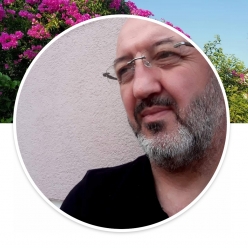
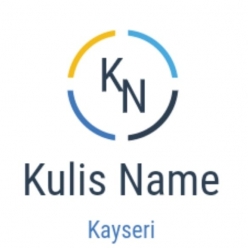


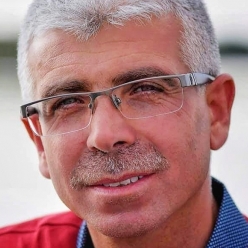

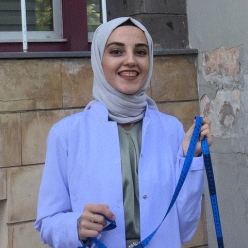
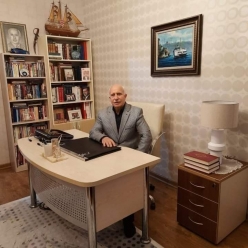
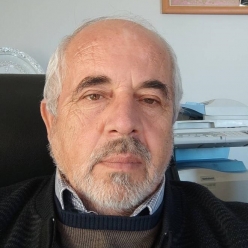
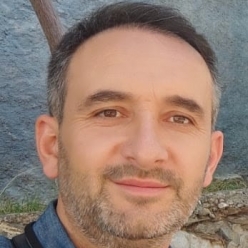


Henüz Yorum yok